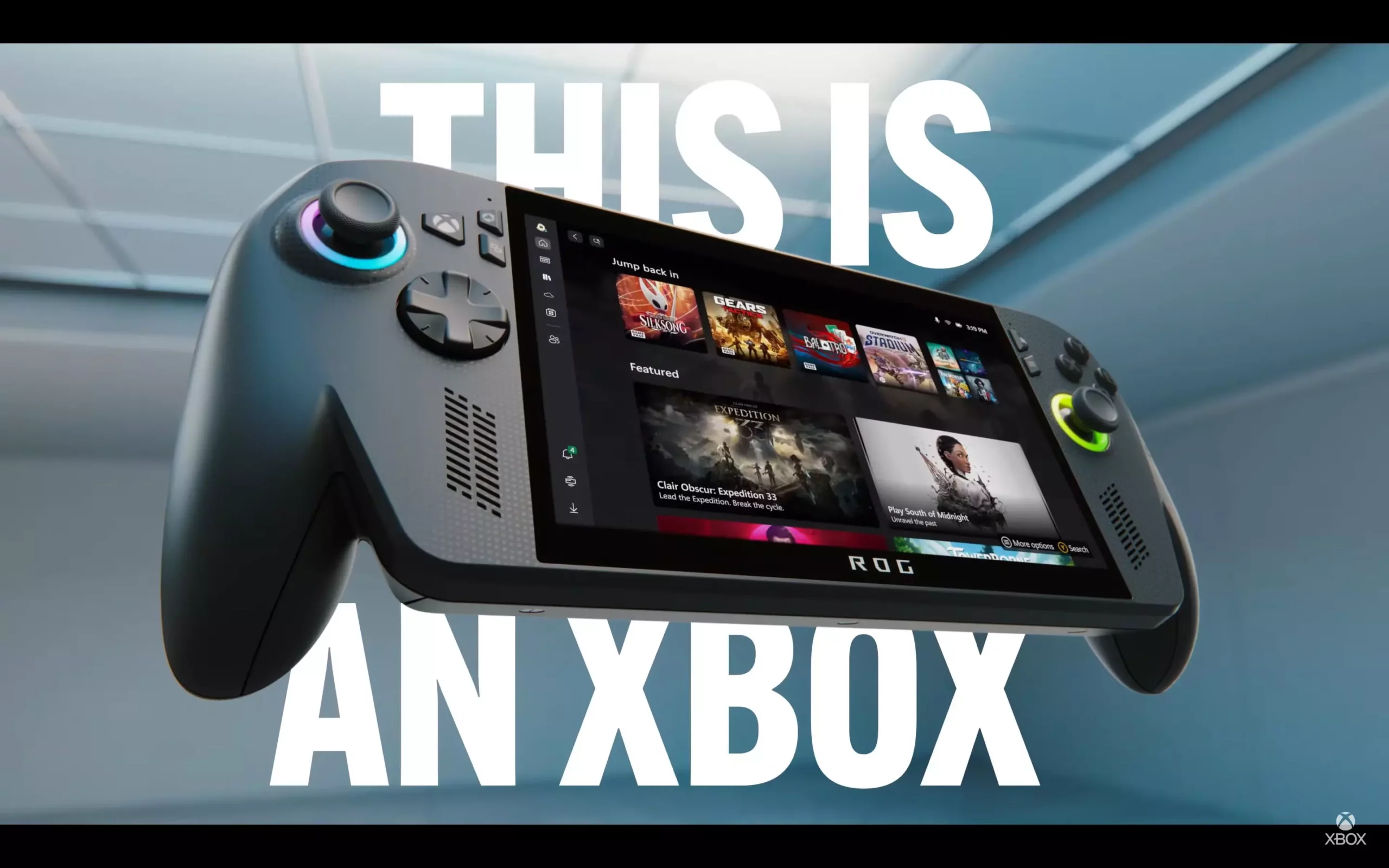Microsoft has taken a bold leap into the handheld gaming market, partnering with Asus to introduce the ROG Xbox Ally X and ROG Xbox Ally. This ambitious venture has the potential to reshape our gaming experiences, merging Xbox’s iconic interface with the flexibility and power of a handheld device. But during this transition from traditional consoles to portable devices, an essential question arises: what does it mean to be an Xbox?
At first glance, the specs of these upcoming handhelds suggest they offer impressive performance, particularly the ROG Xbox Ally X, which boasts a Z2 Extreme chip featuring 16 RDNA 3.5 GPU cores combined with 8 Zen 5 CPU cores. This caliber of technology promises a smooth gaming experience, rivaling some of the best handhelds on the market today. However, with the ROG Xbox Ally equipped with a less impressive Z2 A chip that consists of older RDNA 2 GPU cores and Zen 2 CPU cores, it becomes evident that not all performance will be equal. This discrepancy leads to an expectation that the more basic model needs to be offered at a substantially lower price point to attract budget-conscious gamers.
The Handheld Revolution: Windows 11 at Your Fingertips
Perhaps the most intriguing aspect of these devices lies in their operating system. Both handhelds will run Windows 11, blending the allure of Xbox gaming with the expansive PC gaming ecosystem. This combination means players can access a wide array of game libraries from platforms like Steam, Epic Games Store, and more, all on a device that fits comfortably in their hands. From a consumer perspective, this is a dream come true; the versatility of owning a handheld Xbox that provides access to countless games and services without the constraints of a closed gaming environment is enticing.
Yet, the reality is somewhat paradoxical. If we strip away the Xbox branding and assess the ROG Xbox Ally X and Ally as high-powered PCs, we realize that they are essentially gaming computers clad in the attire of an Xbox console. Does this blurring of lines dilute the identity of what it means to be an Xbox? If a Windows PC can claim the Xbox badge just because it sports an Xbox controller, does it lessen the value of traditional gaming consoles?
Competitive Landscape: Is Microsoft Taking a Step Back?
In recent months, the market has witnessed the impressive strides of tasks like the Steam Deck, which has already begun shaking up the portable gaming scene with an optimized gaming experience via SteamOS. The Lenovo Legion Go S further elevates this competition with a clean, streamlined platform designed explicitly for handheld gaming, contrasting starkly against the potentially clunky experience on Windows. One must ponder whether Microsoft, by developing something that seriously resembles a handheld PC, is conceding the market to competitors who prioritize user experience and design clarity in their products.
Rumors suggest Microsoft has abandoned its plans to develop its own proprietary handheld console, leaving the ROG Xbox Ally as its primary handheld statement. This direction could imply that the company is focusing on enhancing its software and ecosystem rather than competing on the hardware front. While this might seem pragmatic, it raises concerns among loyal gamers worried about the brand’s commitment to innovative gaming solutions that genuinely capture the essence of the Xbox experience.
Looking Ahead: Anticipation and Speculation
As the launch date approaches, scheduled for the holiday season of 2025, the industry is abuzz with speculation regarding pricing and performance. If achievement is rooted in delivering a competitive price, both models must be positioned wisely. The gaming community eagerly awaits only to see if Microsoft can capitalize on this innovative design without compromising the gaming experience its users have come to love.
For now, the ROG Xbox Ally X and ROG Xbox Ally represent a fascinating intersection of gaming and technology. Both offer exceptional promise, but they also come with inherent risks related to brand identity, user experience, and competition. With the inevitable changes in the gaming landscape, one can only hope Microsoft fully embraces the potential of this shift, paving the way for a future that does full justice to Xbox’s legacy.
While the specifics remain murky, the excitement surrounding what these handhelds might offer is palpable, making it an exhilarating time to be a gaming enthusiast.

